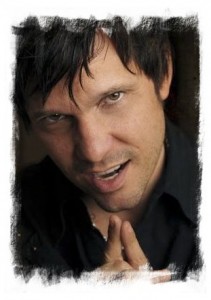
One theme was consistent: The use of Ted Dekker by Christian authors as "proof" of a certain POV.
It's
typical in conversations like the ones on that post, to hear Dekker
referenced (as he was, at least half-a-dozen times). And why not? He's
one of the most well-known, successful, prolific Christian authors out
there. But when did Ted Dekker become the remedy for everything that
ails Christian fiction, the template for our success? And is he a good
example of the real state of the industry? Nevertheless, supposedly...
- Dekker proves that male authors can sell books in the CBA.
- Dekker proves that horror and spec authors can sell books in the CBA.
- Dekker proves that "edgy" books can sell in the CBA.
- Dekker proves that marketing rests with the author.
- Dekker proves that Christian fiction can cross over.
- Dekker proves that author branding is essential.
- Dekker proves that Christian fiction is alive and well.
In the comments, D.M Dutcher theorized that Dekker's success resulted from the fact that he
...seemed to fill A King/Koontz role in Christian fiction
J.L. Lyons played the "Dekker card" when he suggested that "the burden of responsibility for connecting to readers fall on [authors]."
I look at Ted Dekker and I see that he has built himself into a brand, not just with great books but with great marketing. He engaged actively with his fans back in those early days (and still does, to an extent) and built a solid following (“Dekkies,” I think they call themselves). There is something to be said for that. The author’s work doesn’t end at the contract, and most can’t depend on a single awesome book to skyrocket them to success. It takes time and effort, nose to the ground, to build your name into a brand. I’m sure he didn’t do all of it alone, but in the end no publisher or agent owns the Dekker brand. He does.
Heidi Glick expounded upon a "cross-over strategy":
This article explains the strategy Dekker’s publisher uses for crossing over between audiences
Becky Miller was a little more pointed when she simply said,
I’m having a little bit of a disconnect here. So we’re saying Ted Dekker doesn’t sell well?
In the same way that a fantasy writer might reference J.K. Rowling or a romance writer Nicholas Sparks, Christians refer to Ted Dekker. Nothing wrong with that, right?
For a while now, I've felt that Ted Dekker is no longer a good example of the real state of the Christian fiction industry. Here's four reasons why:
- Dekker entered the CBA market when it was expanding. The glut of authors vying for publication now, not to mention the changing publishing terrain, has changed the game.
- Dekker wrote in a genre that was in serious need of titles. At the time of Dekker's Circle Series, speculative fiction and horror was an outlier in the Christian market. The genre has significantly expanded.
- Dekker captured a demographic that was not being addressed. The typical Christian target audience was older conservatives; Dekker aimed at the more youthful, hip reader, connected, and built a thriving community.
- Dekker has publishing momentum. He brings a built-in brand, platform, name value, and sellability.
None of this is meant to diminish Ted Dekker's writing or accomplishments. He's a good writer who's worked hard and done due diligence to further his brand. More power to him. I wish him continued success and believe he's a great voice for Christian writers.
However, I believe that Ted Dekker is no longer a good example of the real state of the Christian fiction industry.
I attended a writers conference a couple years back and spoke to a male Christian speculative writer who has published over a dozen books in the CBA. He was even nominated for a Christy Award one year, the most prestigious of Christian awards. This author has a good website. He speaks at conferences (as he was at that one). He has a fairly active social media presence. I asked him what his sense of the state of the Christian fiction industry was, particularly as it relates to spec-fic. He was frustrated. Even though his books got good reviews, his sales were mediocre. In fact, he flat-out told me that he doesn't believe Christian readers want to be challenged.

I believe this author is a better example of the real state of Christian fiction than is Ted Dekker. Am I wrong?
Mike Duran is a monthly contributor to Novel Rocket, and is represented by the rockin' Rachelle Gardner of Books & Such Literary. Mike's novels include The Telling, The Resurrection, an ebook novella, Winterland, and his newly released short story anthology Subterranea. You can visit his website at www.mikeduran.com, or follow him on Facebook and Twitter.













0 comments:
Post a Comment
Don't be shy. Share what's on your mind.